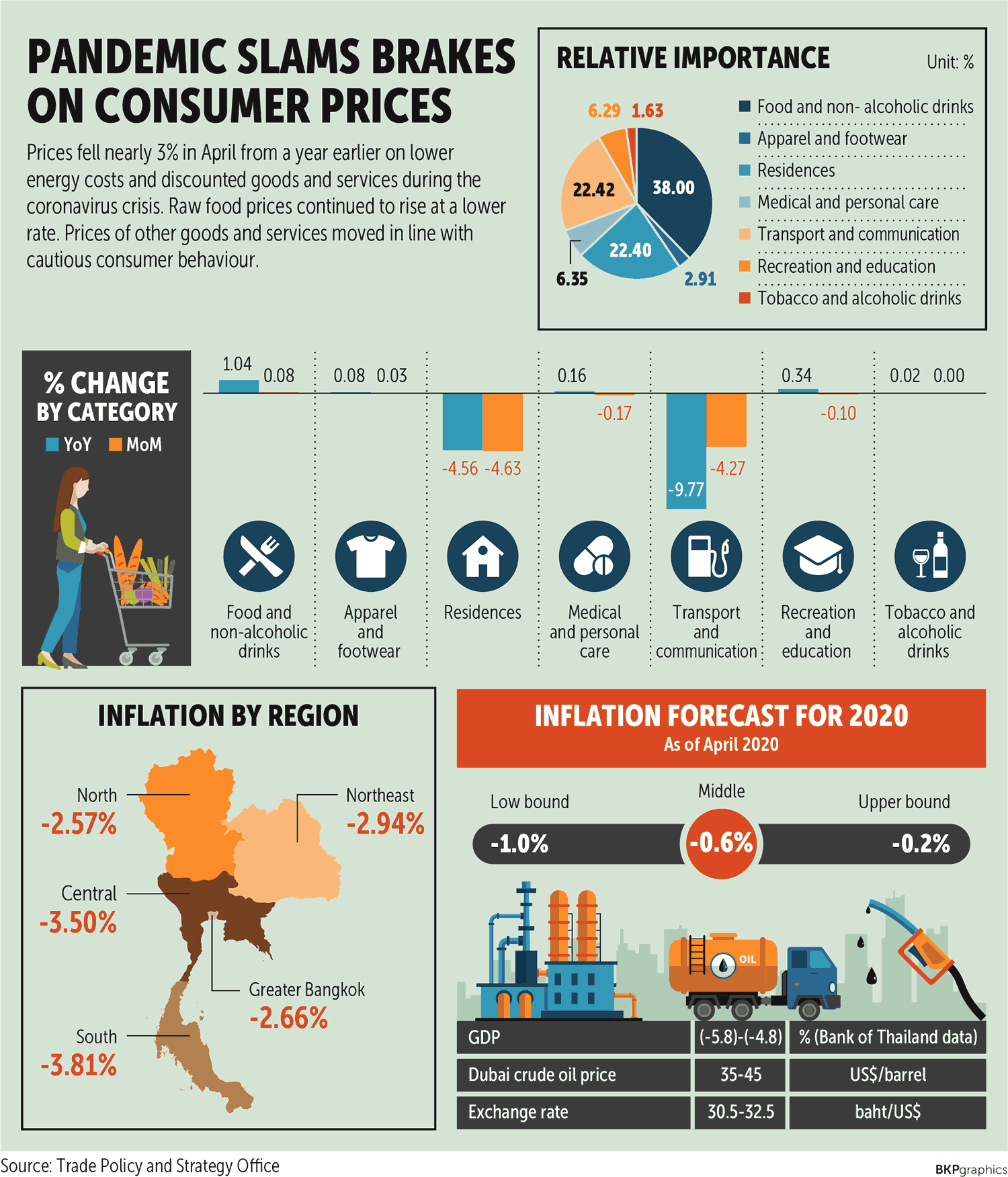Thailand: Q2 prices projected to fall 2.28%
Thailand’s consumer prices may contract by as much as 2.28% in the second quarter because of worldwide lockdown measures to deal with the pandemic, the global oil price slump and relatively poor domestic demand, according to the Commerce Ministry’s planning unit.
Pimchanok Vonkorpon, director-general of the Trade Policy and Strategy Office, said Thailand’s inflation remains far from a technical deflation.
A technical deflation is when prices of goods and services fall for six consecutive months as spending lowers continuously, leading manufacturers to cut prices.
“Reduced economic activities from lockdown measures, cautious spending, weak purchasing power and low oil prices are estimated to drive consumer prices to contract by 2.28% in the second quarter from a 0.2% contraction in the first quarter,” Ms Pimchanok said. “The office is holding off on forecasts for the third quarter but expects inflation to return by the fourth quarter.”
The office forecast for annual headline deflation ranges from -1.0% to -0.2% (with an average of -0.6%).
Ms Pimchanok said the office may readjust the inflation forecast after the first half, which will present a clearer picture about the impact of the lockdown measures.
The office yesterday reported that the consumer price index (CPI), a gauge of headline inflation, fell 2.99% year-on-year in April, the biggest decline in 10 years and nine months. This was the second straight month that saw a decline after the rate fell 0.54% year-on-year in March, the first contraction in 33 months.
Major contributions came from energy prices, which saw the biggest drop in 11 years and two months, and discount goods and services under the government’s measures aimed at reducing the cost of living during the crisis.
Raw food prices continued to rise, but at a decelerated rate, due to drought and the low level of total consumption in the wake of the outbreak. Prices of other goods and services moved in line with consumers’ precautionary behaviour.
Prices for all items excluding food and energy grew by 0.41% from April last year.
For the first four months of 2020, headline inflation and core inflation were -0.44% and 0.50%, respectively.
Ms Pimchanok described the restrictions on economic and social activity during the outbreak as ad hoc factors temporarily limiting demand for goods and services. She said the country’s manufacturing potential and competitiveness remain healthy.
The economic situation and inflation are expected to return to normal once the outbreak eases. After the pandemic, drought will remain as a key issue.
On a monthly basis, the CPI fell 2.03% in April from March. In the first four months of 2020, the index dipped 0.44% from the same period last year.
Ms Pimchanok said the pandemic and global energy prices will be monitored in May. A new energy deal, along with improving virus situations in China and other key countries, could boost energy prices a little.
Thanavath Phonvichai, president of the University of Thai Chamber of Commerce, said core inflation of 0.41% in April indicates that purchase demand still exists.
“The economy is not as damaged as feared, although it remains in a slowdown,” he said. “We expect the second half will see a rising rate of inflation.”
Source: https://www.bangkokpost.com/business/1913160/q2-prices-projected-to-fall-2-28-


 Thailand
Thailand




